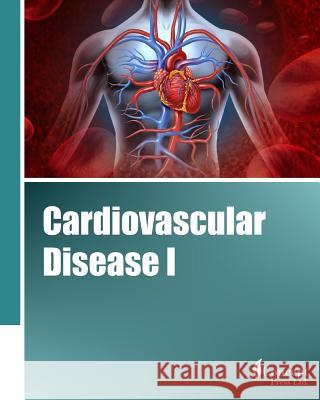Cardiovascular Disease I » książka
Cardiovascular Disease I
ISBN-13: 9781922227546 / Angielski / Miękka / 2014 / 228 str.
Cardiovascular disease is a class of diseases that involve the heart or blood vessels, such as arteries, capillaries and veins. Cardiovascular diseases remain the biggest cause of deaths worldwide, though over the last two decades, cardiovascular mortality rates have declined in many high-income countries. At the same time, cardiovascular deaths and disease have increased at a fast rate in low- and middle-income countries. The causes of cardiovascular disease are diverse but atherosclerosis and/or hypertension are the most common ones.
This book is targeted for researchers, scholars or other health care providers who need a ready reference for cardiovascular disease ranging from causes, signs and symptoms, and diagnosis through treatment and special considerations. There are two volumes. This book is the first volume. There are totally 12 chapters in this book. Chapter 1 proposes that the renal artery diameter could represents a marker of non-traditional cardiovascular risk factors in selected populations. A pathophysiological explanation, including main biophysical background, and clinical implication of this new finding has been critically discussed. Bicuspid aortic valve (BAV) is the commonest congenital cardiac disease and is characterized by the aortic valve only having two leaflets rather than the usual three. Chapter 2 provides a comprehensive review of the condition, from epidemiology and etiology to diagnosis and management. In the case of coronary artery disease, cardiomyocytes' oxygen supply and thus the heart's contractility diminishes with the consequence that the oxygen demands of the whole organism are no longer fulfilled. Chapter 3 focuses on retroperfusion and it is shown that it is possible to perform a regional venous retrobypass in a long term pig model. Chapter 4 discusses the FGF23/Klotho system, which is a new biological system with a pivotal role in normal regulation of phosphorus homeostasis..
Chapter 5 assesses the effect of high-intensity and moderate intensity exercise on the exercise efficiency of ischaemic heart disease patients. Although ischemic heart disease patients were more inefficient during high-intensity exercise, this type of exercise may provide greater benefits for this population group due to eliciting a higher physiological response and energy expenditure. Chapter 6 presents the characteristics of cardiovascular manifestations, including cardiac manifestations, cerebrovascular disease, pulmonary vascular involvement, renal vascular involvement, intestinal vasculitis, and cutaneous vasculitis. All of them are analyzed and described using a retrospective review of the medical records of 1125 SLE patients examined in Juntendo University Hospital between 1955 and 2002. Chapter 7 shows that serotonin, angiotensin II, urotensin II, cardiotrophin-1 and salusin-B exert proatherogenic effects, whereas adiponectin, GLP-1, GIP, heregulin-B1 and salusin-a have antiatherogenic effects. Chapter 8 highlights the role mutations of mitochondrial genome in atherosclerosis.
Chapter 9 reviews the relationship between thiamine and MI. Genetic studies provide opportunities to determine which proteins link thiamine to MI pathology. Chapter 10 illustrates a variety types of peripheral vascular disease including from etiology to endovascular treatment. Especially, venous vascular disease are shown as not only endovascular treatment but pharmaceutical therapy. Chapter 11 proposes conventional and new techniques/methods for diagnosis and treatment of the cardiovascular disease. In addition, the chapter explain the comparison of conventional formulation and new nanomedicine therapy of cardiovascular disease. Chapter 12 describes all aspects of cardiogenic shock, especially as the complication of acute myocardial infarction.











